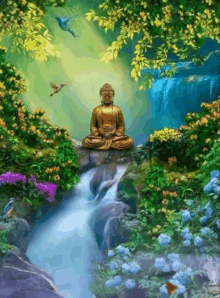Society or Selfishness, Holiness or Sin?
Social man, homo socialis, made humans, taking the hegemony of the globe over other species, from surviving to overruling by cooperation and communication beyond space and time. It has also created the danger of the destruction of all species by discrimination and distrust, by size and synergy.
Social man has a social role and social norm. Natural man is a karma-heir, -owner, -machine imbued by the triple poisons of desire, divisiveness, and delusion from the long self-survival strife, tending to destructive social roles and social norms, making others (humans and other species) enemies, extinctions, etc.
Religious man, home religiosus, tried to achieve holiness (wholesome whole) from sin (sick separation), creating their societies, which were often affected by karma and the triple poisons, making others enemies, etc. The Buddha, Awakened One, attained nirvana (no wind, of karma) and awakened in the Dharma.
His sangha, community, is constantly cultivating karma to Dharma, to be holy, harmonious, healthy, and happy in limitless life. light, liberation, and love in the Dharma of Dependent Co-origination, with a proper social role (to save all) and norms (to observe Precepts, a part of which became the Global Ethic).
August 10, 2024 C.E.
Notes:
- The Triple Poisons are desire, divisiveness, and delusion (of a self-same, self-sovereign self). The “Triple Only” are only me, only now, and only money (short-sighted views and actions, which make the wider world worse), which can be cured by the Triple Learnings of morality, concentration, and prognosis.
- Karma is instilled with the triple poisons of desire, divisiveness, and delusion (of ego/mei: I/my). The Buddha said that all living beings are karma-birthed, -heirs, -owners, -machines, and -refuged. He clarified that there is no self-substance with self-sameness (permanent) and self-sovereignty (wishful) entities due to the Dharma (Truth/Law) of all dharmas (phenomena), Dependent Co-origination. We as karma-machines must change to the Dharma-refuged in order to change the world in suffering to one in holiness (wholly wholesome: harmonious, healthy, and happy).
- Dharma means 1) form (from d-harm: phenomenon) and 2) norm (from d-h-arm: norm: law operating through phenomena: ethic), and 3) the teaching of the law of all phenomena, that is, Dependent Co-origination (originally awakened on the origination of perception/consciousness depending on the sense organs and objects, but later applied to all phenomena, cf. note 4). This law is similar to the law of causality, now used by the sciences, but it is deeper and wider, applied beyond objects – more on subjects and symbols – ideas, etc.).
- “The Dharma (Norm/Law/Truth/Ethic) of all dharmas (forms/phenomena/ truths/ethics)” is Dependent Co-origination, i.e., all phenomena are interdependently co-originated on limitless causes and conditions (similar to the Law of Causality, but deeper and wider – beyond conventions, conceptions, objects, etc.). This means that we are interrelated with other beings (other species, elements, stars, etc.), and relatives to each other, and that we must therefore live together harmoniously and strive to make a wholly wholesome world to become harmonious, health, and happy.
- Religion derives from Latin religare (reunion). Religion is, thus, to reunite with holiness (wholly wholesomeness, cf. Rudolf Otto’s definition of religion as the Holy) from sin (=separation, separated sick, cf. a-sun-der, sundry).
- The solution of the global problematique requires the global ethic (issued by the Parliament of the World’s Religions in Chicago in 1993 with more than seven thousand people from all religions and from all over the world attending), which is based on the Five Precepts (and the fundamental common elements in the Ten Precepts, the Ten Commandments, etc.).
- To reunite with the holiness of the limitless ocean of life from being a separated small bubble or foam of ego or group ego is the goal of anyone or a universal religion, where one lives as a true friend in need of all, as expressed in Mitra, Mithra, Metteya, Maitreya, Mazda, Massiah, etc., and who lives in limitless life, light, liberation, and love.
- A paradigm shift from our artificial, unilateral pyramidal civilization to a natural, cyclical Indra-net life culture for sharing life, heart, and harmony with the five blisses (awakening, freedom, equality, friendship, and peace) is essential to solve the global problematique. Culture is the cultivation of our potential in truth, goodness, beauty, and holiness (cf. sciences, philosophies, arts, and religions).
Please refer to the following for more detailed explanation:
社会か利己か:聖か罪か?
社会人間、homo socialis、は、時空を超えての協力と意思疎通で、人類に他種族を凌いで地球の覇権を持たせた。それはまた規模と相乗力で一切種族の破壊の危険を生み出した。
社会人間は社会役割と社会規範をもつ。長い自己残存闘争からの貪瞋痴三毒を持ち、破壊的な社会役割と社会規範をもつ傾向があり、他(人間や他種族)を敵とし破滅させる等の自然人間は業相続者、業所有者、業機械である。
宗教人間、home religiosus、は罪(病患分離)から聖(健全全体)を達成しようとし、その社会を作ったが、縷々業・三毒に影響されて他を敵などとした。ブッダ、覚者、は涅槃(無風、業の)を達成し法に覚醒した。
彼のサンガ、共同体、は縁起法により適切な社会役割(一切救済)と規範(戒を守る、その一部は地球倫理となった)のと共に無量寿・無量光・無量自由・無量愛の中に聖、調和、健康、幸福に業を聖にするように常に修行している。
2024共通年8月10日
註:
1.三毒は貪瞋痴(自己同一、自己主宰の我という愚痴)である。三だけは今だけ、金だけで自分だけということであり(短見・短絡行動で、より広い世界を悪化させる)が、戒定慧の三学はこれらを治癒できる。
2.業は貪瞋(エゴ/メイ:我/我所の)痴の三毒が植え込まれている。ブッダ(覚者)は一切衆生は業—誕生者、—相続者、—所有者、—機械、—依拠者であると言った。彼は、諸法(現象)の法(真理/倫理)である縁起の故に自己同一(永住)と自己主宰(意欲通り)の実態をもった自己物質は存在しないことを明らかにした。業—機械である私達は、苦しむ世界を聖(全体健全:調和、健康、幸福)なる世界に変える為には、法₋依拠者にならなければならない。
3.法(dharma)は 形態(form: d-harmより: 現象:真理)、2.規則(norm: d-h-armより:現象中の規則:倫理)、3.諸法の法、縁起(元来は感覚器官と感覚対象に依る知覚・意識の発生に覚醒したが後に一切現象に適用されたもの。註4参照)。この法則は、現今諸科学に用いられる、因果律と同様であるが、もっと深く広い-客体を越えて主体と観念などの象徴に適用される。
4.諸法(形態・現象)の法(規則・法則・真理・倫理)は縁起(因縁生起)、即ち、一切現象は無量の直接原因と間接条件により相依生起するということである(因果則に似ているがさらに深く広い-世俗、観念、対象などを超える)。これは私達が他者(多種、要素、星宿など)と相依関係にあることを意味し、相互に相対的であり、私達が調和、健康、幸福になる為には共に調和して生き、全体健全な世界を作る努力をしなければならないことを意味する。
5.Religion(宗教)はラテン語religare (再結合)に由来する。だから、宗教は罪(sin = 分離、分離病患, cf. a-sun-der, sundry)から聖(holiness = wholly wholesomeness 全体健全、参照 Rudolf Ottoの宗教の定義:the Holy)に再結合することである。
6.地球問題群の解決には(1993年シカゴで世界中から諸宗教の七千人を超える人々が集まった世界宗教会議により発出された)地球倫理を必要とするが、これは五戒(と仏教他の十戒の基本的共通要素)に基づいたものである。
7.エゴや集団エゴの分離狭小の泡沫あるいは泡群から無限の命の大洋に再結合することは誰もあるいは普遍宗教の目標である。そこでは無量寿、無量光、無量解放、無量愛を生きる友・友情(Mitra, Mithra, Metteya, Maitreya, Mazda, Massiah)で表される一切の必要の時の真の友として生きるのである。
8.私達の人工的で一方向の金字塔文明から命・心・和の分かち合いによる五福(覚醒、自由、平等、友情、平和)をもつ自然的で循環的な命帝網文化への枠組転換が地球問題群を解決する為には必須である。文化は私達の真善美聖(参考:諸科学、諸哲学、諸芸術、諸宗教)における潜在能力を修養することである。
詳細説明は下記を参照:
.
.
.
.
.
.
.
.
.
.
.
.
.
.
.
.



